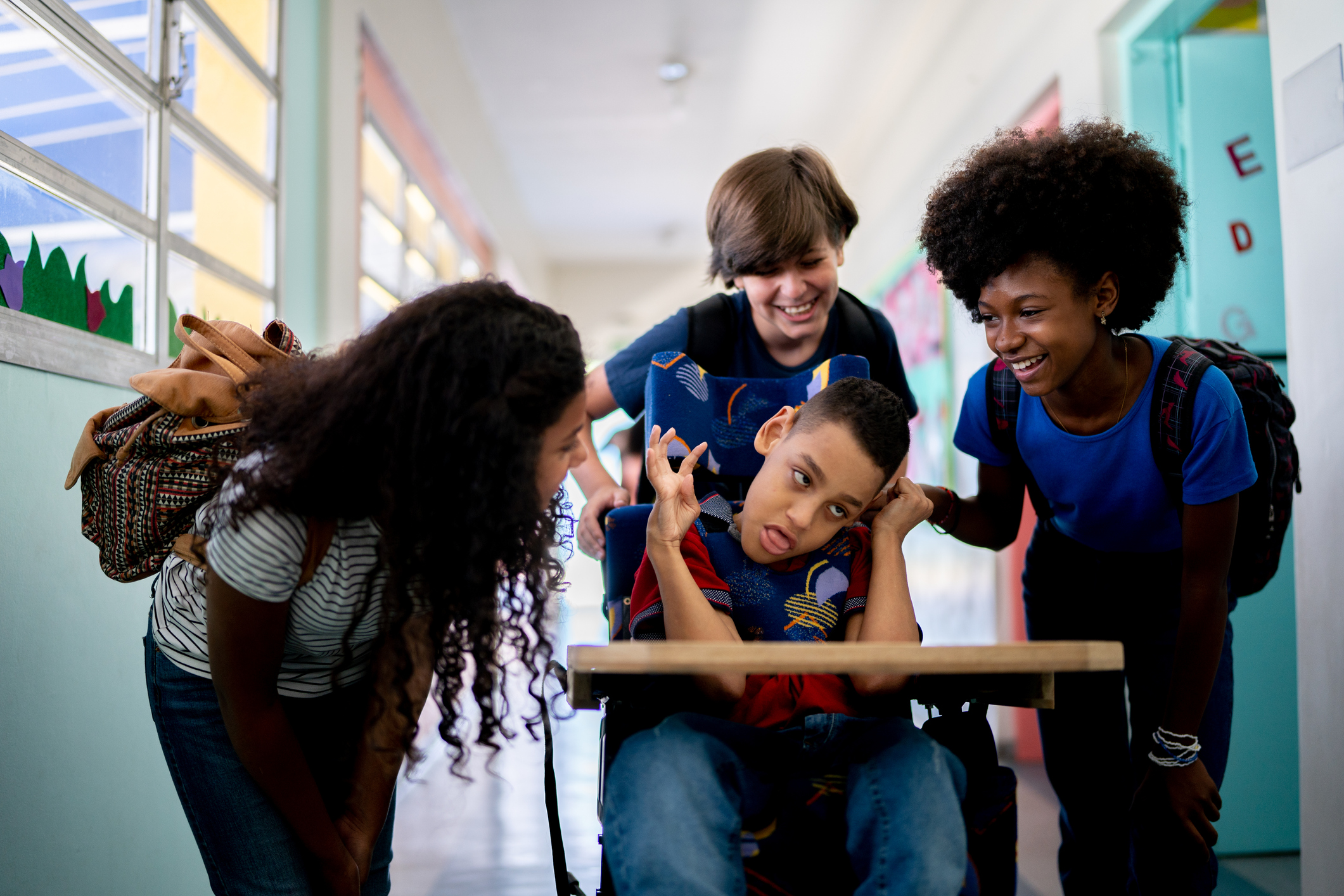“I’m no good,” my son grumbled. He didn’t want to go to cross-country practice. “Sammy laughs at me and calls me slow.” As I thought about what to say next, my son added, “He’s such a jerk. I hate him, Mom.” I sighed. Sammy stood at least a foot taller than the other boys and had won a ribbon at the last meet. Clearly, he had natural talent. But instead of being a leader and encouraging other boys like my son, he chose to knock them down. I could understand my son’s feelings, but I wanted him to rise above it.
Middle school and high school can be petri dishes for meanness. Boys can be tough on each other, especially about athletic ability. But girls put each other down too. Gossiping and passive-aggressive insults hurt just as much. It takes courage and strength to be kind when others around us aren’t. To raise nice kids in a mean world, we can rely on these 5 questions to steer them in the right direction.
1. What are my family’s values?
“Let’s do a sneak attack! This guy’s one of the stupid ones, so he won’t see it coming!” my son said, playing in his room several years back. I crouched down to pick up an action figure. “Are you calling one of these guys stupid?” I asked. I know it may sound silly to make a big deal out of it, but I believe if my kids speak harshly with toys, they’re going to do it to people too. “We don’t call names or say others are ‘stupid’ in our family.” He nodded.
Teaching your kids your family values gives them a baseline of what’s appropriate, even at play.
2. What’s the big picture?
“It’s true Sammy wasn’t nice to you,” I told my son as he grumbled about whether to go to cross-country practice. “But don’t let him ruin your season.” My son needed to look at the big picture. He had been getting exercise and had discovered a new interest and enjoyment in running. If this kid continued to tease my son, we’d have to talk to the coach. But I didn’t want his focus to get stuck on this other child rather than on what he set out to do and could still accomplish.
By widening the lens on a difficult situation, we teach kids to go beyond grudge-holding and an eye-for-an-eye mentality. Rather than seeking revenge or acting out from hurt, kids who look at the big picture focus instead on what really matters.
By widening the lens on a difficult situation, we teach kids to go beyond grudge-holding and an eye-for-an-eye mentality. Click To Tweet3. Can I change my perspective?
“But Randy was so mean in elementary school,” my son lamented when I suggested he give a boy in his homeroom another chance. “People change,” I said. “And I think it’d be good if you tried to forget about the past and see if you two can be friends.”
Nice kids try to look at a situation or a person in a different light. We can help our kids do that by challenging their negative assumptions. “I know you didn’t enjoy visiting Great-Aunt Clara’s house last time, but you’re older now. You’ll see how much joy you bring her when we visit.” Guiding our kids to examine things in a different way teaches them empathy, a powerful quality nice kids possess.
4. When and how can I build up others?
“Great job!” my daughter said to Gemma, giving her a high-five when she climbed out of the pool. Gemma struggled to finish the 50-meter race, but her teammates cheered for her the entire second length of the pool. That’s what nice kids do. They look at the child who’s struggling and find a way to lift her up.
We can encourage our kids to build up others by being good examples when our children lose a game or perform poorly on a test. Focusing on the effort over the result helps. “Good try, kiddo! You did your best and that’s what matters!” Our kids will become the nice kids too when they see from us how it’s done.
5. How can I help?
When we’re out with our kids, point out ways to help. “Let’s give these people our seats,” I said to my daughter at church. At her robotics competition a few days later, a girl from another team dropped a dollar bill. “Go grab it,” I told my daughter. “And give it to her!”
Being a good person starts with noticing others: The kid struggling to open her locker. The teacher with her arms full, trying to push through a heavy door. In these moments, nice kids notice and step in to help. So, encourage it. Look for opportunities to lead your child in noticing others. You’ll soon see her step up to help without being told.
In what other ways can we teach our kids to be the nice kids?










